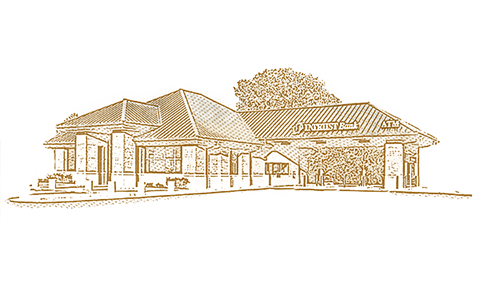Home Loans

Turn a house into a home
Purchasing a new home is an exciting undertaking, but sometimes the experience can seem overwhelming. That's why having the residential lending team at INTRUST Bank to guide you through the financing can be so helpful. Our expertise, coupled with our resources, can simplify the process for you from pre-qualification to loan closing. With us by your side, you can relax and concentrate on moving in to the home of your dreams.
Loan Programs

Fixed Rate Loans
- Predictable, non-variable mortgage payments
- Might be right for you if you plan to be in your home for a while
Adjustable Rate Loans (ARMs)
- Generally offer an initial rate that is lower than a fixed rate loan
- After an initial fixed rate period (3, 5 or 7 years), the interest rate is subject to annual adjustments based on the movement of a specific index. The adjustment is not to exceed 5 percent as part of the initial adjustment, 2 percent annually after that, and 5 or 6 percent over the life of the loan, depending upon the loan program.
- Your monthly payment changes as the rate changes annually.
- May be right for you if you need the lowest possible initial payments or if you don't plan to keep your home for more than a few years.
Loan program details

| Rate Type | May be right for you if: | Features | |
|---|---|---|---|
| Conventional Loan | Fixed or ARM | You plan to put down at least 5% |
|
| Home Possible or HomeReady® | Fixed |
|
|
| Jumbo Loan | Fixed or ARM |
| Borrow between $484,351 and $2 million |
| Federal Housing Administration (FHA) | Fixed |
| Allows for a gift from a family member for down payment |
| Veterans Affairs (VA) | Fixed | You are a qualified veteran borrower |
|
Rates and Terms3

| Loan Type | Rate | APR | Assumptions | Monthly Payment | Final Payment |
|---|---|---|---|---|---|
| Conventional 30 Year Fixed Rate | 3.750% | 3.807% | Assumptions | $853.19 | $871.04 |
| Conventional 15 Year Fixed Rate | 2.625% | 2.729% | Assumptions | $1,076.30 | $1,076.89 |
| Conventional 10 Year Fixed Rate | 2.625% | 2.777% | Assumptions | $1,517.43 | $1,517.44 |
| FHA 30 Year Fixed Rate | 2.250% | 3.269% | Assumptions | $797.29 | $794.36 |
| VA 30 Year Fixed Rate | 2.375% | 2.647% | Assumptions | $614.62 | $612.26 |
Rates listed are effective as of 8/2/2019 for loan amounts of $100,000 to $484,350, are not guaranteed, and are subject to change without notice. Rates and/or origination fees may vary depending on the consumer’s credit scores, loan-to-value ratio, and/or reason for the loan, such as purchase, refinance or cash-out refinance.

Mortgage Experts
Let us help guide you

Our team of experienced mortgage experts will help guide you through the process of purchasing a new home or refinancing your current mortgage. Learn more about each of our experts as well as their skills and experience.
View ExpertsCalculators

These calculators are provided for your convenience. The accuracy of the calculation is not guaranteed. It is not intended as an advertisement, a disclosure statement under any consumer law, or an offer of tax, legal, financial or investment advice, and the calculator is not guaranteed to be applicable to your circumstances. It is not a guarantee of the availability of any particular loan product or interest rate, or an offer to make a loan.
Frequently Asked Questions

Contact Us

Have questions or want to get started? Give us a call at the number below and we'll be happy to help.



.png?Status=Temp&sfvrsn=91c53d6b_2)